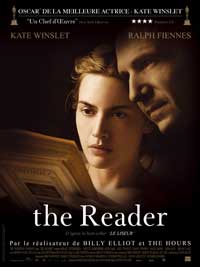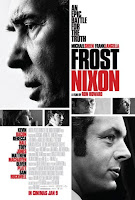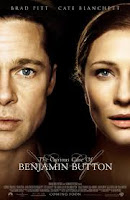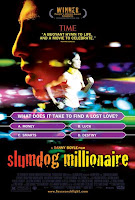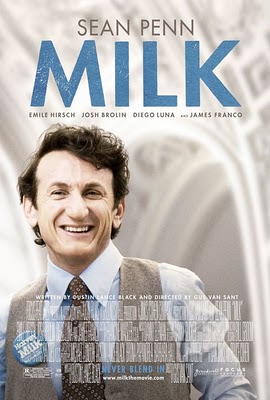The Reader reviewed by Megan Kearns
“So often, we see a man playing the villainous role of a Nazi so it’s interesting to me that a woman embodies that role instead. Yet, I can’t shake the unease I feel with the portrayal. Hanna has no children, no family and never marries. This may not have been the intended consequence, yet it comes off as a cautionary tale. Hanna appears to possess no maternal instinct; rather than protect, she seduces a sweet and naïve boy, alternately treating him tenderly as a passionate lover or with curt callousness. She stands trial for war crimes as a former SS guard, participating in the deaths of hundreds of women and girls. I can’t shake the feeling that if she had been scripted to bear a child or to have lost a child, she wouldn’t have behaved this way. Are single, childless women more cruel and apathetic? No, of course not. Yet Hollywood continually seems to reinforce the notion that women without children are cold and calculating.”
Frost/Nixon reviewed by Stephanie Brown
“Ron Howard’s direction is straightforward, a “style of no style” that allows the actors and story to shine, but it’s full of wit and sly humor, such as a scene in which an unwatched TV is playing the ubiquitous and silly television commercial of the 1970’s which depicted a tear-stained American Indian man canoeing through a polluted river. The costumes and art direction give us the wide lapels, shag carpet, black limousines and white phones of the era and they look normal; no one is making fun of past lapses in taste—indeed, they look like totems of power. Frost/Nixon is a movie full of men who are talking, standing, sitting, and walking through halls on the way to important meetings. Charlotte Cushing, Pat Nixon, and Diane Sawyer are not central players, either in the cast or in the drama of the story. This is right and fitting at a time when Martha Mitchell was deemed crazy for truth telling about Watergate, and was alleged to have been drugged in order to keep her quiet. It was a man’s world, and it is their power as well as their corruption depicted here.”
The Curious Case of Benjamin Button reviewed by Jesseca Cornelson
“Other than these very important magical elements, the universe of TCCOBB is relatively realistic, save for its gliding over of both the women’s movement and the Civil Rights Movement. What are we to make of this? The way I see it, since TCCOBB works hard to incorporate historic events like World Wars I & II and Hurricane Katrina, (1) the filmmakers don’t think that race and gender figure very largely in 20th century and early 21st century American history; (2) they imagine that in the same magical world where a baby can be born with the features and ailments of an old man, issues of gender and race are magically non-issues; or (3) since this is Benjamin Button’s story, he just doesn’t give a crap about race and gender. Choice three is definitely the least plausible. Benjamin Button is one very nice guy who definitely gives a crap! (Maybe the point is “Here is a really nice white guy!”) He loves his black momma Queenie (as portrayed by Taraji P. Henson)! He loves Cate Blanchett’s Daisy, even when she’s an unlovable prick. I sympathize with filmmakers and writers of all kinds, for that matter, who want to tell stories set in the historic south about something other than race. Must every story set in the historic south be about race? No, certainly, I don’t think so. But when race comes up—as it most definitely does here since Benjamin is adopted by an African-American woman—it seems strangely unrealistic to neglect the complexity of historic race relationships.”
Slumdog Millionaire reviewed by Tatiana Christian
Latika continues to be a rather passive and almost mute character as she follows our main characters around. The boys have found shelter in a gigantic crate, and it’s pouring while Latika stands in the rain, shivering. Jamal and Salim bicker over whether or not to let her in – and much like before – Latika is given permission to act as she crawls into the crate, soaking wet.
The disempowerment of poor women in India is also reflected in this film. According to Rashimi Bhat, “Women and girls have less access to food, education and health care than men and boys. Hence, they may face poverty more severely than men.” This concept is seen when the children are discovered by Maman (played by Ankur Vikal), a man who rounds up children and forces them to act as beggars. Maman asks the children to sing for him, and those who can are blinded because they earn more money that way.
Milk reviewed by Drew Patrick Shannon
What struck me most about Milk at the time of its release was its celebration of the writer. The trailer proudly announced “Written by Dustin Lance Black” in huge blue letters, and the very fetching Mr. Black won a well-deserved Oscar for his efforts. His Academy Award speech, in which he pleaded for the acceptance of young gay men like himself, is already legendary, and in interviews with magazines like The Advocate, he chronicled his difficulties in getting the script written and his exhaustive research. Perhaps the best thing about his script is that it doesn’t venerate its subject: it would have been all too easy to turn Harvey Milk into a saintly angel in America, but he is instead presented by turns as charming and irritating, pleasant and cantankerous, open-minded and bull-headed. And despite the opening which announces his death, the film doesn’t belabor this inevitable trajectory: the focus of both the film and the characters is on the moment, or on a rosy future. Again, the film’s only flaw, to my mind, is that Milk still seems at arm’s length from me, and I craved a more intimate relationship with him. But perhaps this is the point.
